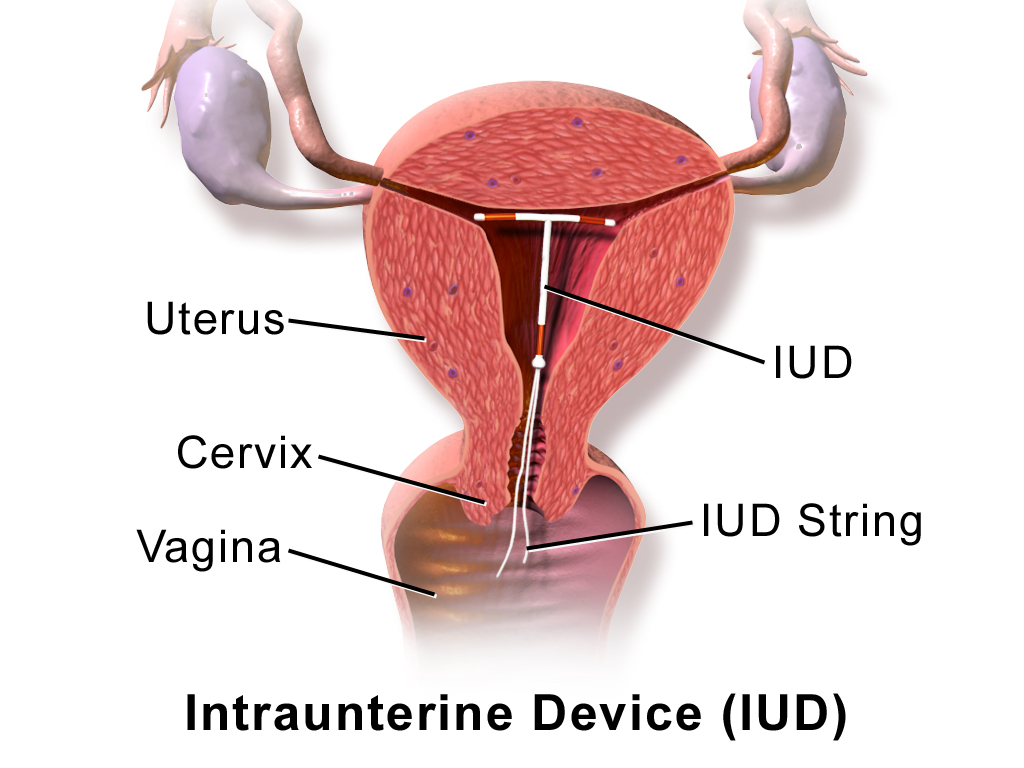Why a Woman Yelling "Fuck You Paul Ryan" While Getting Her IUD Isn’t Funny

By:
Getting an IUD, a long-lasting contraceptive inserted in the uterus, can be a painful process. Women have compared getting an Intrauterine Device to being tasered or experiencing labor pains. It’s no surprise that patients might let out a few grunts or moans during the insertion process, but one woman’s response had a nurse in stitches.
Last week, a nurse tweeted that one of her patients allegedly shouted “Fuck you Paul Ryan,” while getting her IUD.
Twitter user @TheDreamGhoul works as a nurse at a women’s clinic in the Midwest, Allure reported. She declined to provide her name or that of the clinic where she works.
However, @TheDreamGhoul took the time to share via twitter how this hilarious moment reveals how policy affects women’s decisions about reproductive care.
“This was funny, yes. But the meaning behind it is what should frustrate everyone. With all of the threats to reproductive healthcare, women everywhere are feeling pressured to get long acting contraception,” @TheDreamGhoul wrote in several successive Tweets.
 AP/Rick Bowmer - apimages.com
AP/Rick Bowmer - apimages.com
She expanded to Allure:
"We see women who are rushing to get long-acting contraception because they feel they are backed into a corner. These women are afraid of losing their coverage and their clinics altogether while this administration is in power. On one hand, it makes me so happy that we can provide these services and contraceptive methods to women, but it is so frustrating when you understand the fact that women are, once again, feeling like their choice and their bodily autonomy is being taken away from them."
Fear of losing coverage.
Since President Donald Trump was elected in November, there has been a 900 percent increase in women trying to get IUDs at Planned Parenthood, organization president Cecile Richards told CNN in January. That’s because women fear that under the conservative administration, their access to health care and cost-free birth control might soon disappear.
Former President Barack Obama’s Affordable Care Act (also known as Obamacare) mandated that birth control be treated as a preventative health care benefit that had to be covered without a co-payment. This allowed many women to receive contraceptives at zero cost.
 Gage Skidmore - flickr.com
Gage Skidmore - flickr.com
Speaker of the House Paul Ryan was a key architect in creating the Republican replacement for the ACA—the American Health Care Act—which passed the House of Representatives in May. The Congressional Budget Office estimates that this bill could cause as many as 23 million people to lose their insurance by 2016. The bill also eliminates federal Medicaid funds from going to Planned Parenthood, which could make it harder for low-income women to receive contraceptive care.
The White House Administration has also drafted a proposal that would allow any employer to seek religious or moral exemption from Obama's birth control mandate, Vox reports. Under current law, churches and other places of religious worship, are the only employers that don't have to cover contraception.
How an IUD works.
Depending on the type of IUD, the device can prevent pregnancy from 3 to 6 years (some can prevent pregnancy for 12 years). And if patients are worried that, with the repeal of the Obamacare, they won’t be able afford the cost of buying birth control pills every month, getting an IUD inserted before the repeal of Obamacare is an attractive alternative for some women.
 Wikimedia Commons - wikimedia.org
Wikimedia Commons - wikimedia.org
@TheDreamGhoul also noted that IUDs are not a one-size-fits-all solution, and some doctors remain reluctant to recommend IUDs for certain patients. An IUD may simply not be an option for some people depending on their medical history. People with cervical or uterus cancer shouldn’t get IUDs, and those who have had breast cancer shouldn’t get a hormonal IUD, according to Planned Parenthood. Pelvic infections and STDs can also be barriers to getting an IUD.
Some medical professionals recommend IUDs only for patients who have had children because the opening of the cervix is smaller for those who have not given birth than for those who have. In 2012, Mother Jones investigated why doctors might be reluctant to provide IUDs. From Mother Jones:
"[Guttmacher Institute's Dr. Lawrence] Finer acknowledges that some doctors 'are working off of old information and are more hesitant to prescribe newer methods to younger women and women without children.' A 2012 study by the Centers for Disease Control and Prevention showed that a third of practitioners had misconceptions about the safety of IUDs for women who had never given birth."
Some of that old information, according to Mother Jones, included misconceptions about infertility, the ability for young women to get them, or the insertion process for women who have not had children.
Regardless, @TheDreamGhoul is stressing is that, with the lingering fear of policy that could reduce women's health care options, "choice is being taken away from women."
